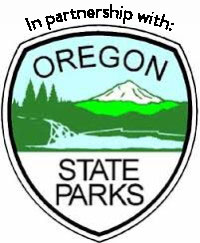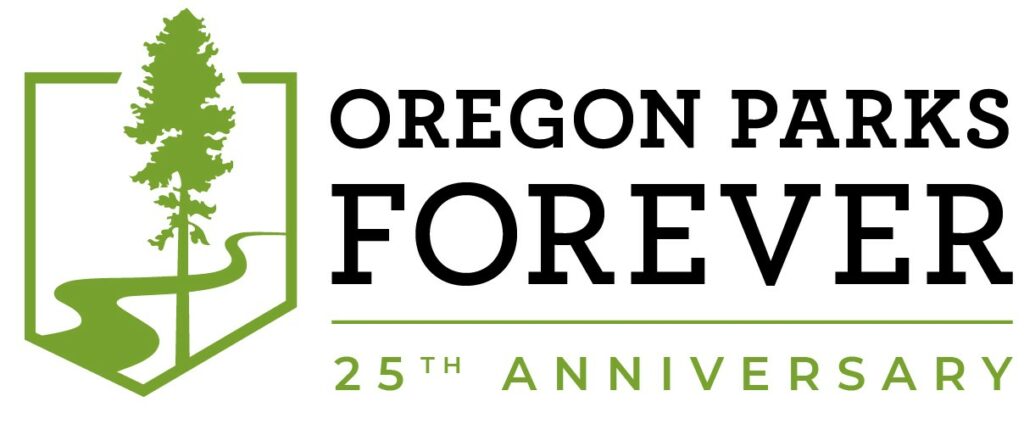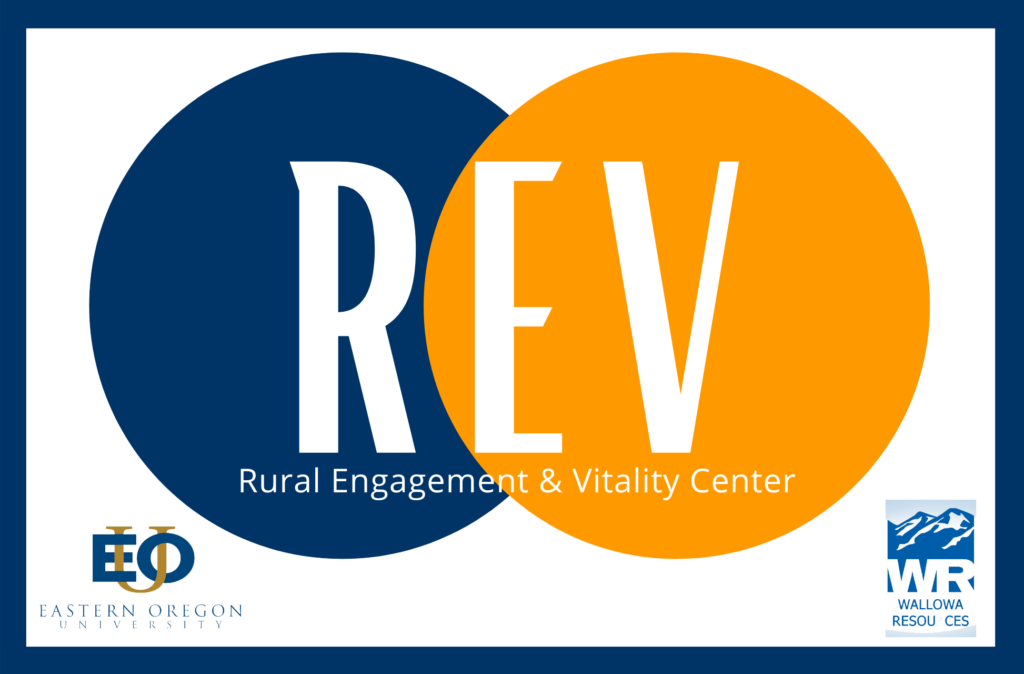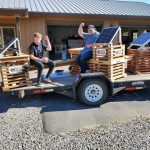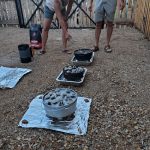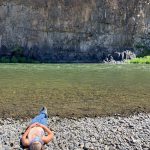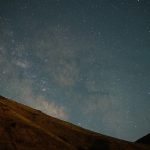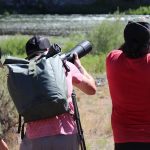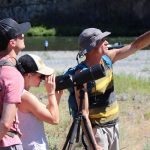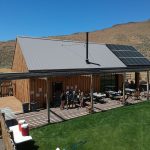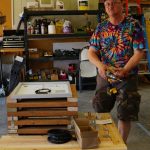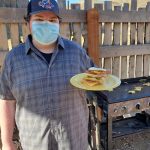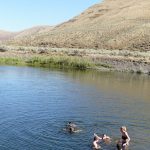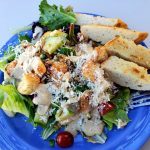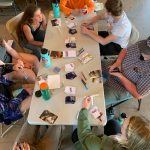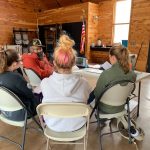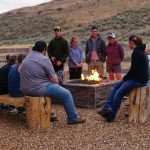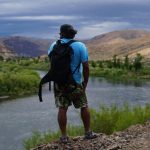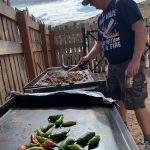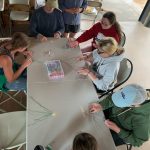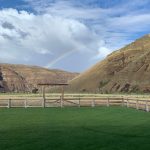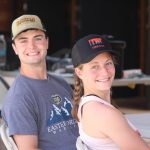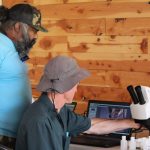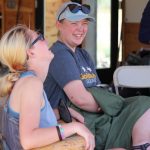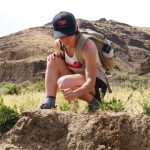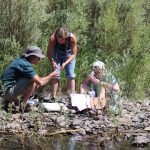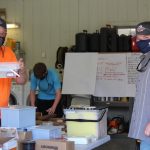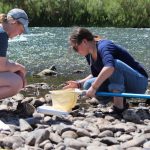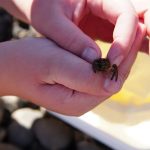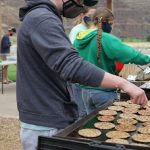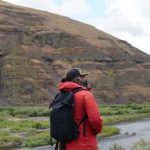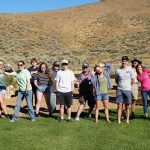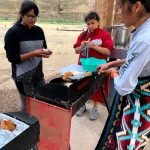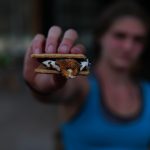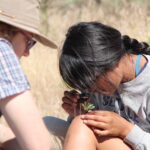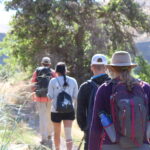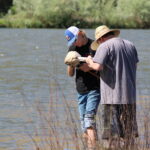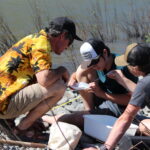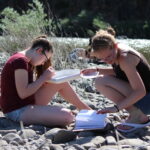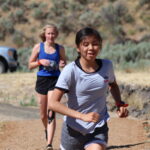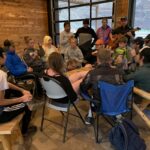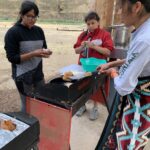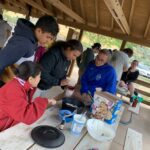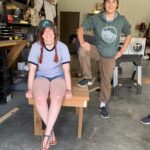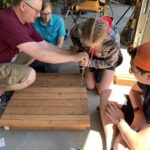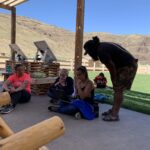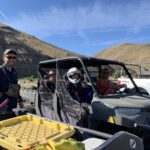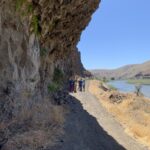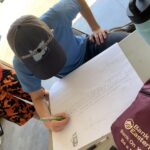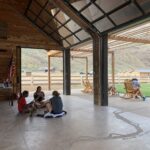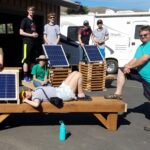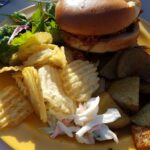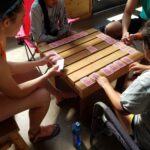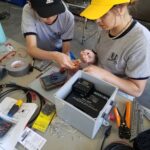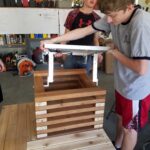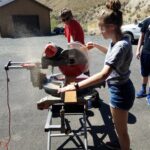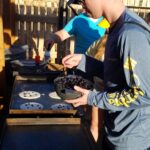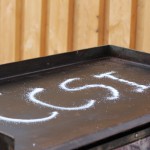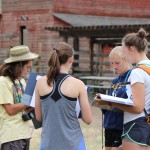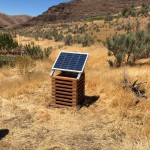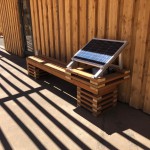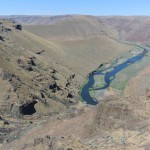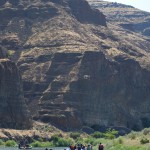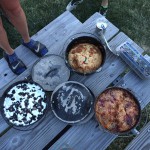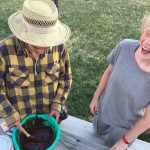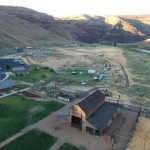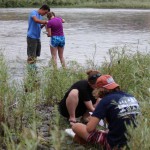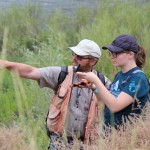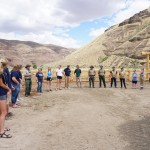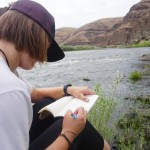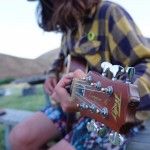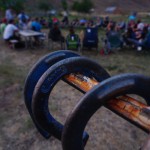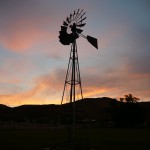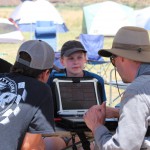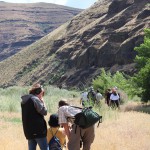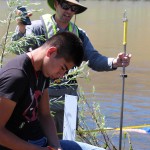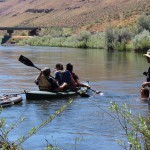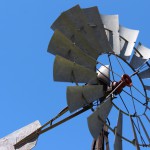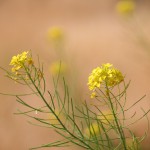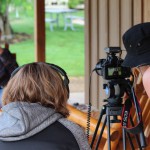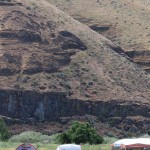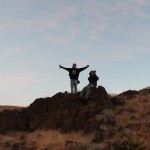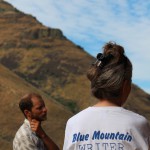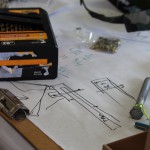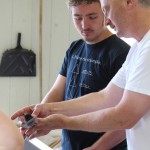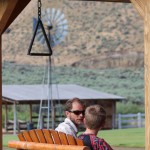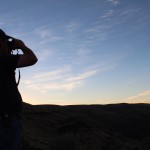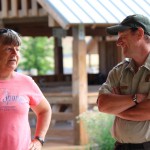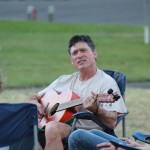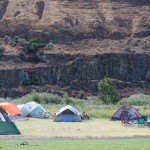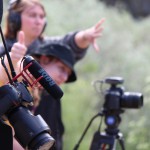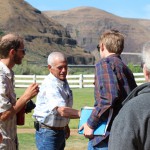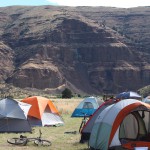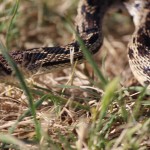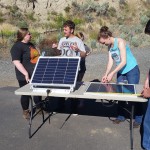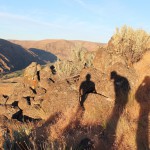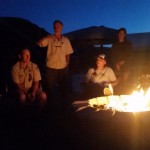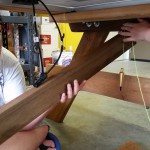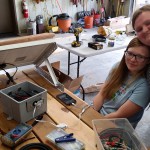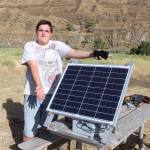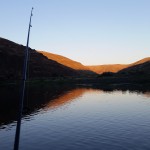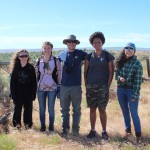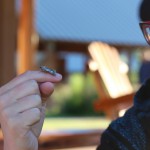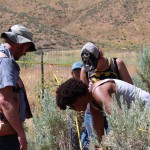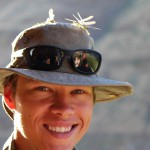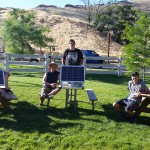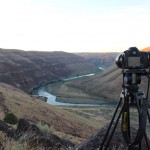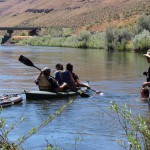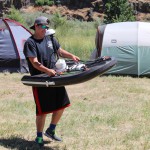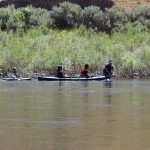Cottonwood Crossing Summer Institute
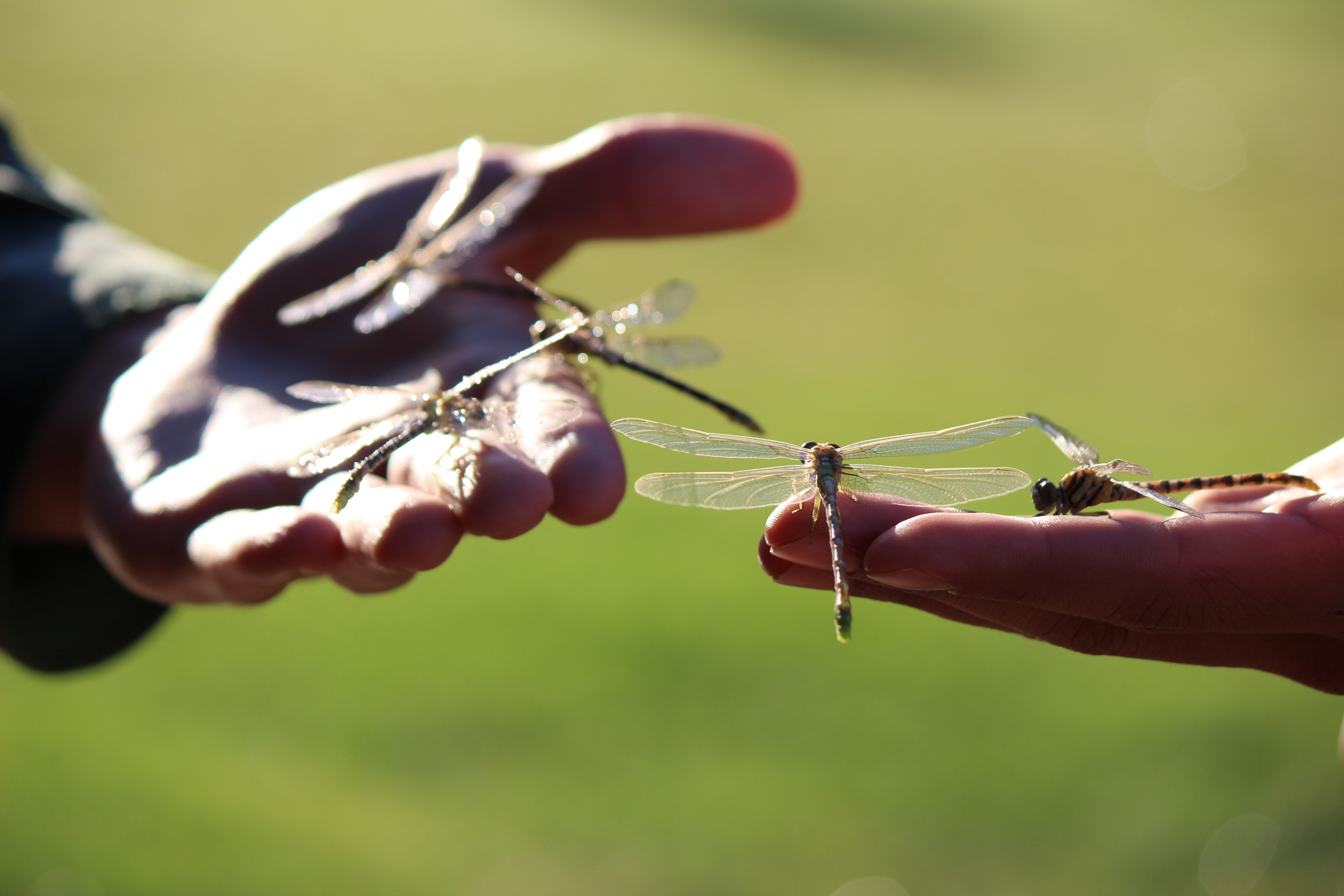
Cottonwood Crossing
Summer Institute
June 15-20, 2025
Cottonwood Canyon State Park (located along the John Day River on Highway 206 between Wasco and Condon)
Cottonwood Crossing Summer Institute (CCSI) is a week-long residential field studies program for high school students currently in grades 9-12. Participants choose from four course options where they learn about locally significant cultural or natural resources. Projects are led by EOU faculty, EOU Capstone students, and other regional professionals. Students earn 2 early-college credits through EOU’s Early College Initiatives program.
Cost to attend: $350 (scholarships are available! – see the link on the “Forms” page)
Make lifelong friends while studying Oregon’s natural resources and heritage on the John Day River.
Applications are accepted from January 15 to May 15 (or until the program is filled)
When filling in the application, be sure to select Cottonwood Crossing from the list. Once selected you will be asked which project you want to do.
What do Students do at CCSI?
Students are assigned to one of the following courses. Let us know your preferences when you apply.
In the River
Rocks, Rivers, and Ancient Life
Students will learn about the local rocks in Cottonwood Canyon and the volcanic activity that originally formed them. Through direct observation, they will learn about the ways that water shapes the earth and creates different physical environments that are inhabited by living organisms of today. They will also work with fossilized organisms, the evidence of past life present in rocks, and gain an understanding of how they are formed and preserved.
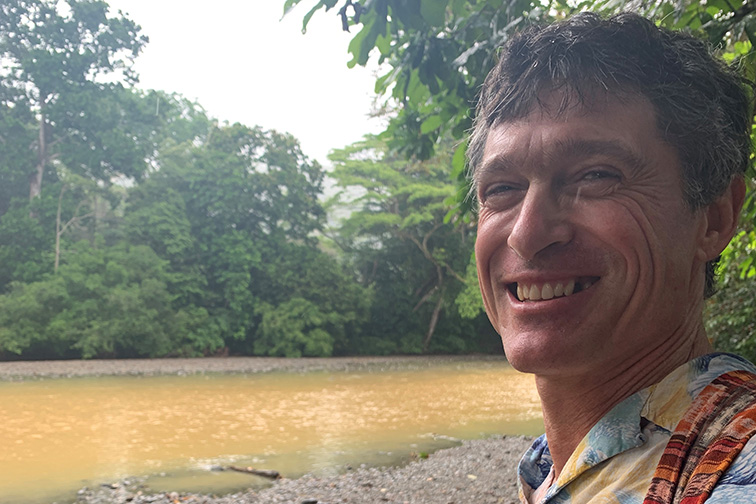
Instructor: Joe Corsini is a professor of Biology at Eastern Oregon University. He has a Ph.D in Microbiology with an emphasis in Virology and has taught biology at all levels for 16 years. His current research projects include a study of the diatoms at Hot Lake in Union County and DNA studies of relationships between Western Painted Turtle populations.
Visual Storytelling
Writing in the Wilderness
The writing project will introduce students to the wilderness, ecosystems, history, and culture and region of the John Day River through acts of reading, writing, photography and discussion. Daily activities will include learning how to create a visual narrative through a variety of field research methods, such as developing photography techniques, conducting observations and journaling, testing narrative-building skills, and learning group project design as we study and write about this landscape. By the conclusion of this project students will present their findings and work in a cumulative visual narrative that is planned, developed and shared as a group. Students are encouraged to bring a camera (film or digital) if they have one; although this is not required to be a participant in this project. All other materials will be provided.
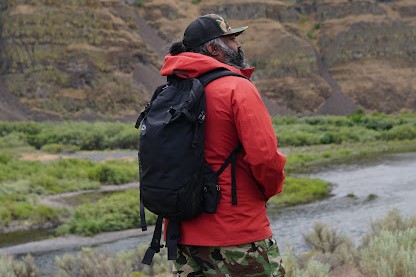
Instructor: James Stolen is currently a Senior Instructor II of English and Writing at Eastern Oregon University. He received a BA from Carleton College and MFA at Virginia Tech. He is an avid explorer and hiker, and centers much of his fiction, essays and poetry on the landscape of the American West.
Neuroscience
Nature’s Navigation
Students will learn how the invertebrate nervous system combines multiple sensory cues, including Earth’s magnetic fields, into a complex hierarchy of signals that can direct and guide navigational tasks. Fieldwork will include collecting samples and examining invertebrate behavior under a microscope.
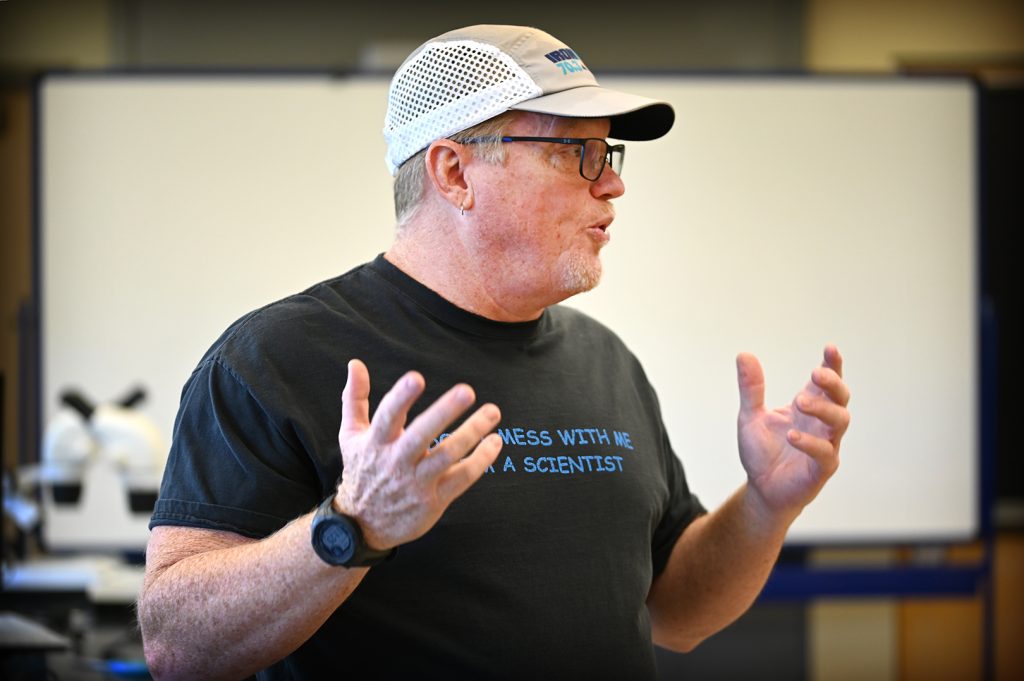
Instructor Shaun Cain is a Professor of Biology at the College of STM & Health Science.
Natural Resources
Fisheries and Riparian Habitat
Students will learn the changing dynamics along the John Day River with some historical, cultural, and present-day challenges. Which some of the impacts are from climate change, development, agriculture, and invasive species. The field project will include the sampling of macroinvertebrates along a reach on the John Day River and how to identify them to order or families. Students will learn to process a small study of biodiversity integrity and how they are impacted with changing watershed dynamics. This will also be integrated into identification for fishing techniques as a fly fisher.
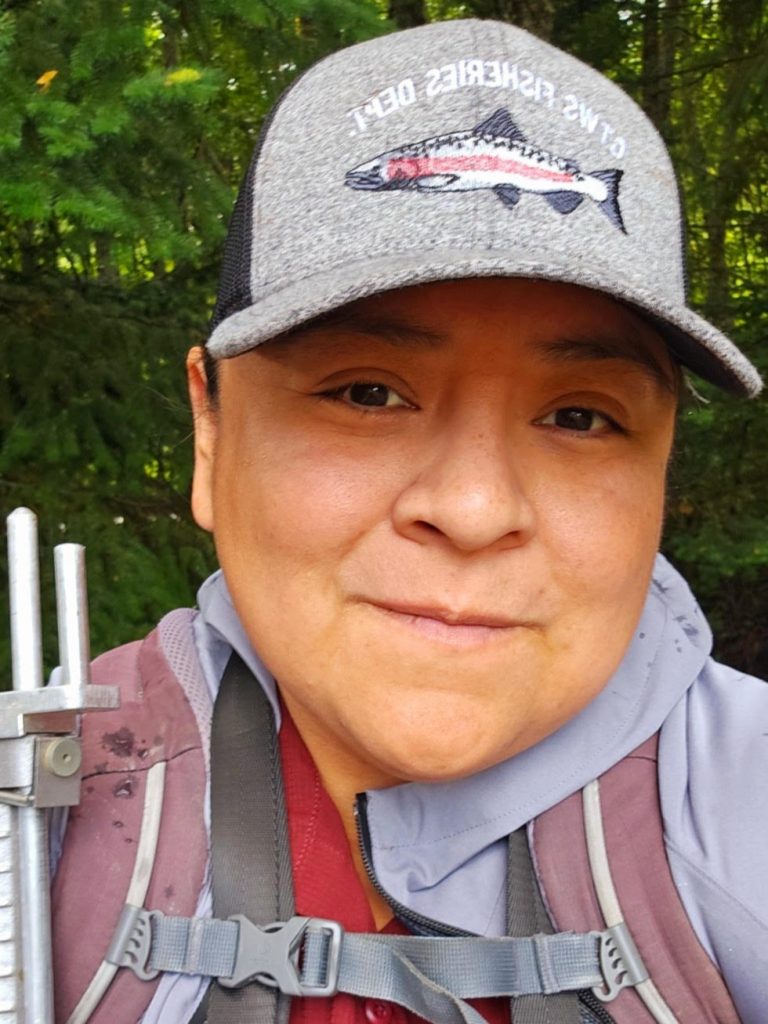
Instructor: Christine Longjohn is a Navajo Riparian Ecologist, who is working for The Confederated Tribes of Warm Springs as a Fisheries Biologist. I am from Utah and have had the opportunity to work in the Pacific Northwest with the Tribes and The Forest Service. I have been a part of restoration projects in the John Day Basin and currently working on Salmon monitoring programs in the Hood River Basin. I am an avid Fly Fisher with a passion for our watershed health.
Outdoor Recreation
River Day!
All camp participants will take a journey with EOU Student Mentors and Instructors on inflatable kayaks and inner tube to enjoy a slow 10 mile float from the park”
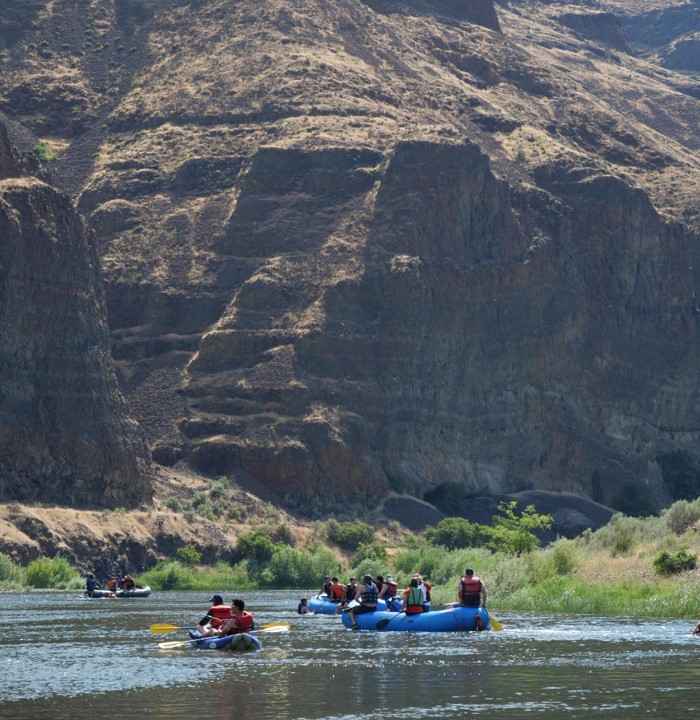
This is an all hands on deck group activity to relax, recharge and take in the scenery around them.
Final Presentation Day
Members of the community and families are invited to attend the project presentations on Friday at 10am. You will be amazed at what our young people can do!
Samples of Previous Student Work
The videos and images below are representative of a variety of student projects from 2015 and 2017. Both videos were created by students in the Writing with Images series. Bringing Back Bighorns was a 2017 Oral History project. The Weed Transect video was created by students to describe what students in the Botany project were studying in 2015. The images show picnic table designs created in 2017 to provide solar charging stations at camp sites. For an overview of the week in 2018, see the video at the bottom of the page!
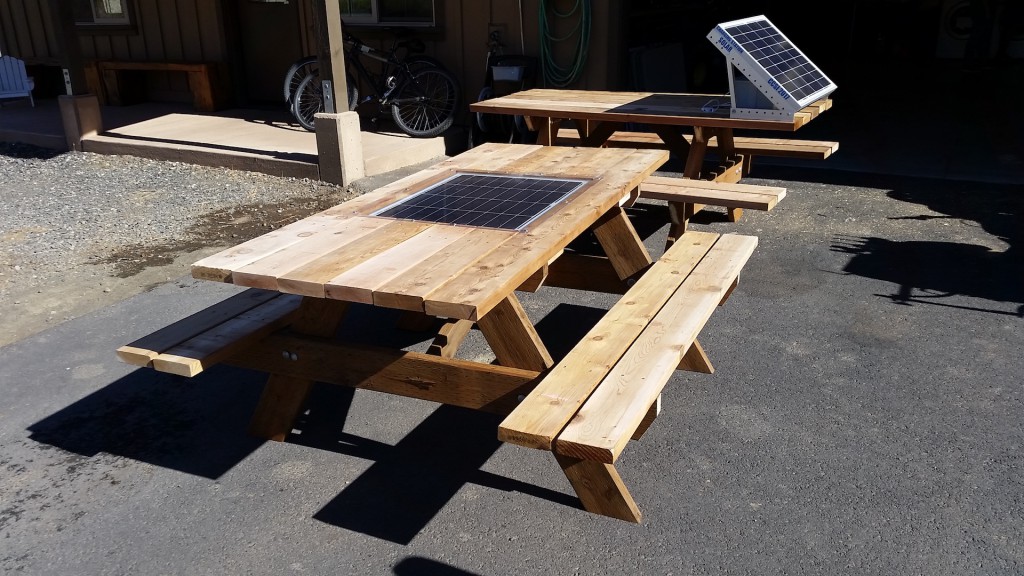
What to Bring
Most of the institute will be spent outdoors so participants should bring appropriate clothing and gear. A list of essentials is provided below as helpful suggestions. The weather tends to be hot and sunny but can also be cold, wet, or windy on some days.
What you NEED to bring:
- Tent (a low profile tent is best in case of wind and tent stakes are essential)
- Sleeping bag, pillow and sleeping pad or cot
- Toiletries – toothbrush, toothpaste, deodorant, hair ties etc
- Towels (for showering and swimming)
- Long pants
- Shorts
- T-shirts or tank tops
- Long sleeve shirts or sweatshirts
- Socks (for hiking)
- Underwear
- Swim suit
- Leather hiking boots or tennis shoes
- Shower shoes (flip flops)
- Sleepwear
- Jacket (for rain or cool evenings)
- Warm hat
- Sun hat
- Water bottle
- Notebook
- Pencil/pen
- Day pack
- Flashlight or headlamp and batteries
- Personal medications (Epinephrine pen (if needed), Ibuprofen, or other)
Bathroom facilities
Our main bathroom facilities have running water and showers.
Food
All regular meals are provided as well as some snacks. Please be sure to have a refillable water bottle or camelback to use during the day. You may also bring additional snacks.
Optional things to bring
- Water shoes (recommended for rafting)
- Personal flotation device for swimming and rafting (we do supply them, but you can bring one you are comfortable with)
- Camp chair
- Camera
- Chapstick
- Sunscreen
- Bug spray
- Sunglasses
- Fishing gear and license
- Work gloves
- Games for the evening (cards, frisbee, balls or other portable games that can survive dust and dirt)
- Musical instrument
- Personal snacks
- Lotion
Cell service
You can bring your cellular devices but note that there is no service.
CCSI for Teachers (CCTI)
We are offering two teacher options in 2025.
Week 1 – June 15-20 (30 PDU)
Teachers who attend during the week of CCSI will observe students as they learn current field research techniques from professionals, collect and analyze data, and apply their learning to real projects. They will see first-hand how students respond to the high-level challenges presented in CCSI courses and have time to collaborate with other teachers to develop project-based lessons for their own classroom that meet Oregon education standards. See the section titled “What do students do at CCSI?” to get an idea of the research and projects that will be happening this year. Limited spaces are available.
Week 2 – June 22-25 (20 PDU)
Our second week is for teachers only. During this week you will engage in hands-on learning through two projects – water quality studies, and storytelling. Our program is focused on technical skills and projects that you can use with your students and also encourages collaborative time with your colleagues to identify and problem-solve challenges you’ll face in the classroom during implementation.
Stipend: A $750 stipend is available (must attend the full week)
How to Apply: Contact Eric Carlson with questions, ecarlson@revcenter.org.
Forms
When you have completed your application to attend, you will be directed by our staff to visit the forms page. This page contains links to signed documents that are required to attend as well as to the EOU Early College Initiatives Application and our Scholarship Application.
Photo Gallery
2021:
2019:
458,2018:
2017:
Cottonwood Crossing 2019
For additional questions or for more program information please contact:
Grace Donovan
Executive Director – Rural Engagement & Vitality Center
gdonovan@revcenter.org
Office: 541-962-3012
